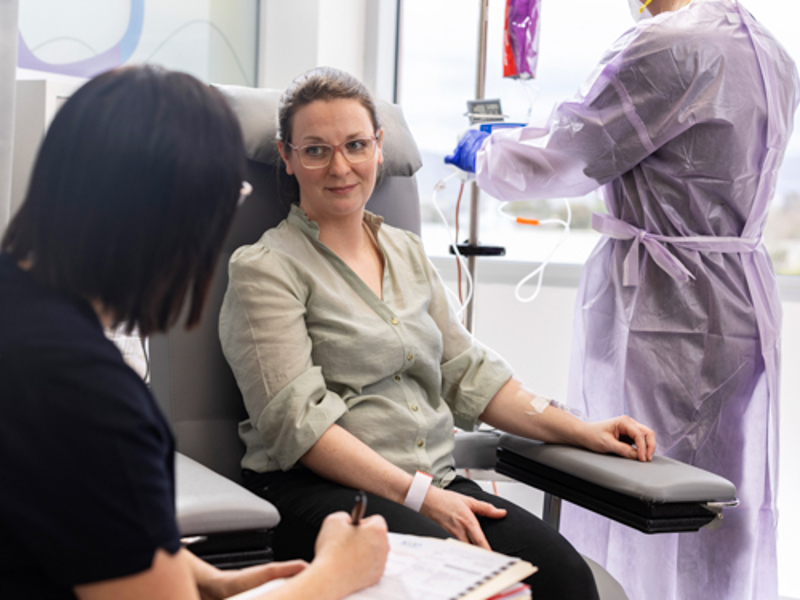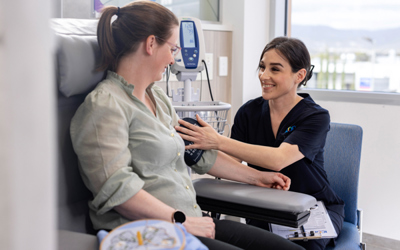Understanding blood disorders
There are many different types of blood disorders. A blood disorder is similar to a blood cancer, but is defined as non-malignant (meaning it is not cancerous).
A general practitioner can help to diagnose a blood disorder and will likely refer you to a haematologist for treatment and management of your condition. A haematologist is a specialist doctor who treats blood-related disorders and disease.
When something is wrong with your blood it can affect your overall health, and if left untreated symptoms commonly impact day-to-day life.
Common types of blood disorders
Anaemia – Anaemia is a lack of red blood cells in the blood which result in reduced oxygen to the cells
Iron deficiency – Iron deficiency is a type of anaemia which causes tiredness, shortness of breath and dizziness
Haemochromatosis – Haemochromatosis is an inherited genetic condition which occurs when the body absorbs and improperly stores too much iron from the diet
Myelodysplasia – Myelodysplasia refers to a group of blood disorders that cause problems in the blood cells produced in the bone marrow.





